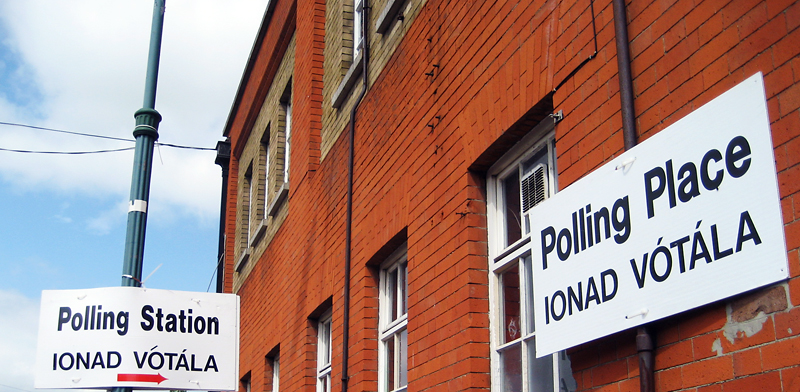After listening to the real concerns raised by disabled people and having discussions about how disabled activists feel that the Care Referendum can negatively effect them, we have decided to change our stance in that referendum to a No.
We have had to give the matter a lot of consideration and while our initial position was for Yes/Yes because we were supportive of removing sexist, gendered care roles from the Constitution, we were never supportive of the replacement wording chosen by the government. In the Dáil and subsequently we made the point that they rejected the recommendations of the Citizens’ Assembly and Oireachtas Committee, but we opted on balance to support it, not considering it worse than the existing Constitutional commitment to support care.
However, during this campaign, disabled activists, carers and others have brought new and compelling arguments into the debate. In particular, disabled people have raised their voices and said not alone do they not trust the government to “strive to” support them based on an entire life experience of having to fight for absolutely everything, but they also see real dangers in embedding into the Constitution a locating of care at home among the family – with no mention or commitment to care in the community. They have stated the amendment reinforces ableism, charity and neo-liberal ideals and runs contrary to the socialised care we favour as socialists.
Unfortunately, the government has not engaged to allay these fears whatsoever in the past 10 days, giving no guarantees of support and reinforcing everything raised by disabled people. Last week we wrote to and raised with the Taoiseach and Minister O’Gorman about these issues and got no response. Scepticism is reinforced by comments yesterday by the Taoiseach where he makes explicit his view that care is ‘very much a family responsibility’ and not a responsibility of the state.
We feel it is a really positive development that people with disabilities and disabled activists in particular have powerfully imposed themselves in this debate. We fully acknowledge that we weren’t mindful enough of the needs and rights of disabled people in taking our initial stance. We commend those who have injected these issues into the debate and we want to work with them in any way we can, inside and outside the Dáil, to advance the interests of disabled people.
In particular, we were swayed by the argument that should the referendum be passed, it is very likely the issues would be closed off for years, whereas should it not be passed – precisely because of the campaigning voices of disabled activists – it is a much stronger basis for a campaign and a struggle from below in which disabled people play a key role for a new wording along the lines recommended by the Citizens’ Assembly which commits the state to support care in and outside the home. There obviously needs to be a referendum to remove archaic sexism from the Constitution but since the referendum is not conferring any new right to women and ignores the rights of disabled people, we feel a Yes/No is appropriate. The government has put people in the invidious position of having to make a choice between these and many people will be voting both Yes and No in the care referendum for progressive reasons.
As socialist feminists we stand with those who most keenly feel oppression and discrimination. We stand for the wealth and resources in society being taken out of private hands of a super wealthy elite and powerful corporations, and used to provide homes, education and healthcare for all. This is innately a socialist and anti-capitalist struggle – and this struggle for socialised care, for a society that puts caring for the needs of people and the environment at its heart, has to be this. Capitalism is absolutely dependent on the unpaid care work mainly done by women. It’s a system that will never put the needs of people for an independent life ahead of the profits of a few.
We commit to having more dialogue with disabled people and to raise issues affecting them much more. As a starting point we will discuss with individuals and groups about how we use upcoming private members’ time in the Dáil to further these issues. We have tabled a motion to ratify the Optional Protocol to the UN Convention on the Rights of Persons with Disabilities and call on the government to immediately sign the protocol and support the motion. We call on other parties to now come out for a Yes/No as the outcome that would best register a progressive approach and not an endorsement of either the government or the conservative, religious or far right.
Ruth Coppinger & Mick Barry TD












